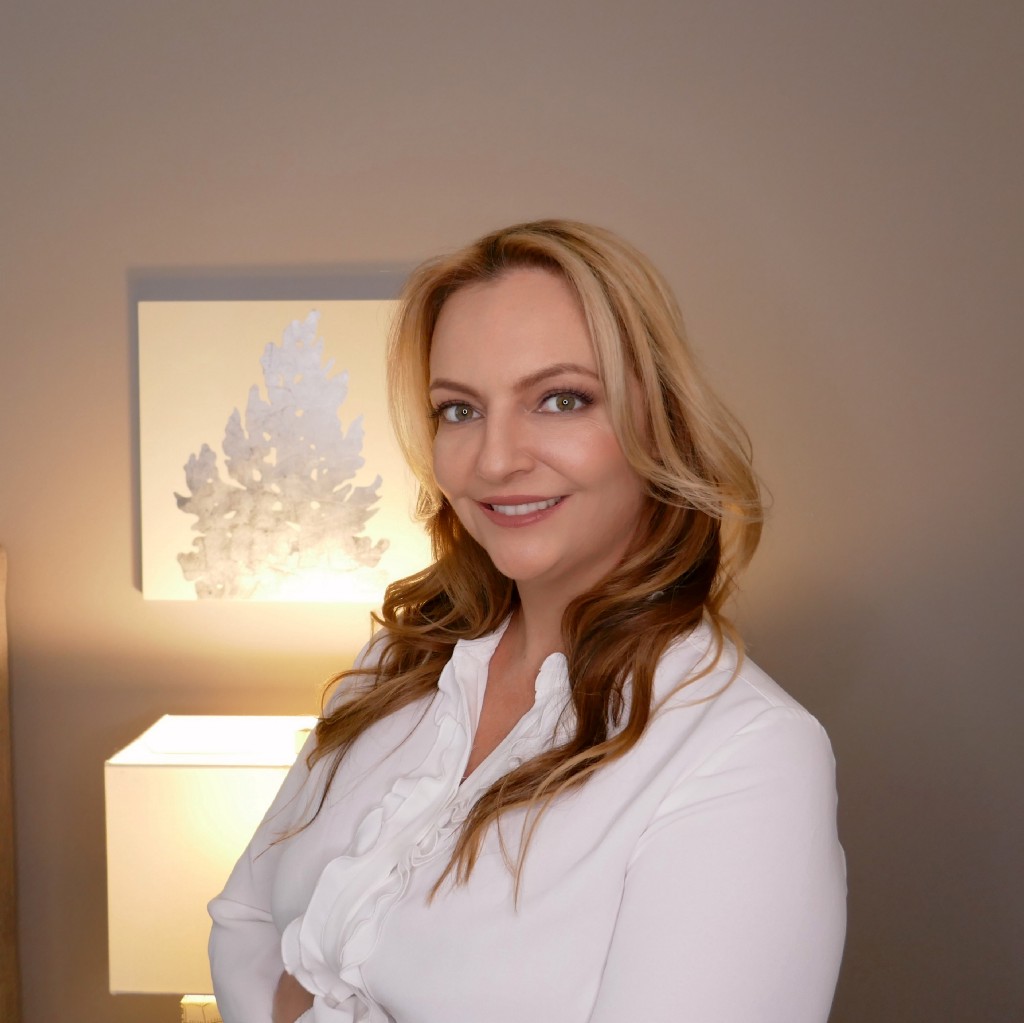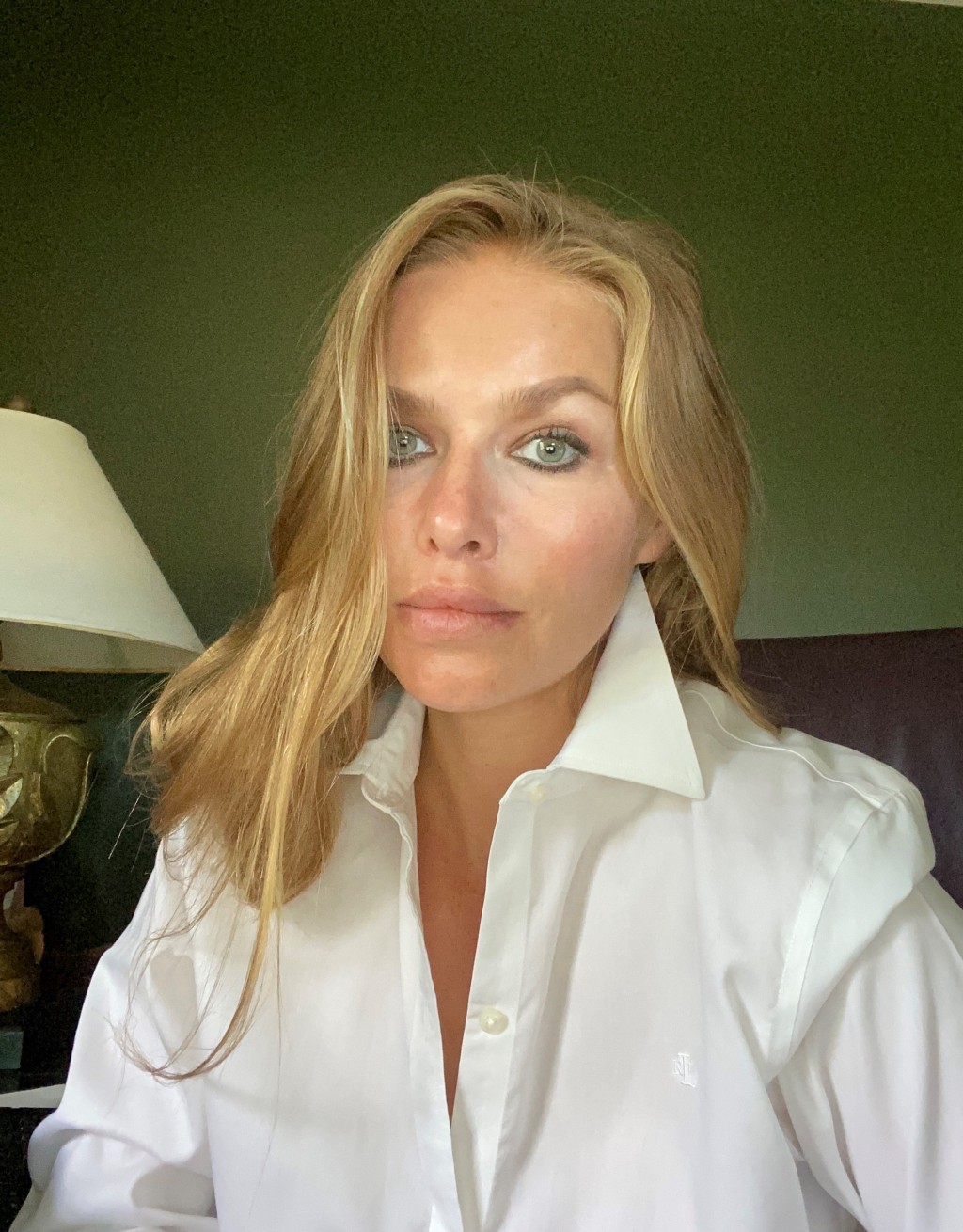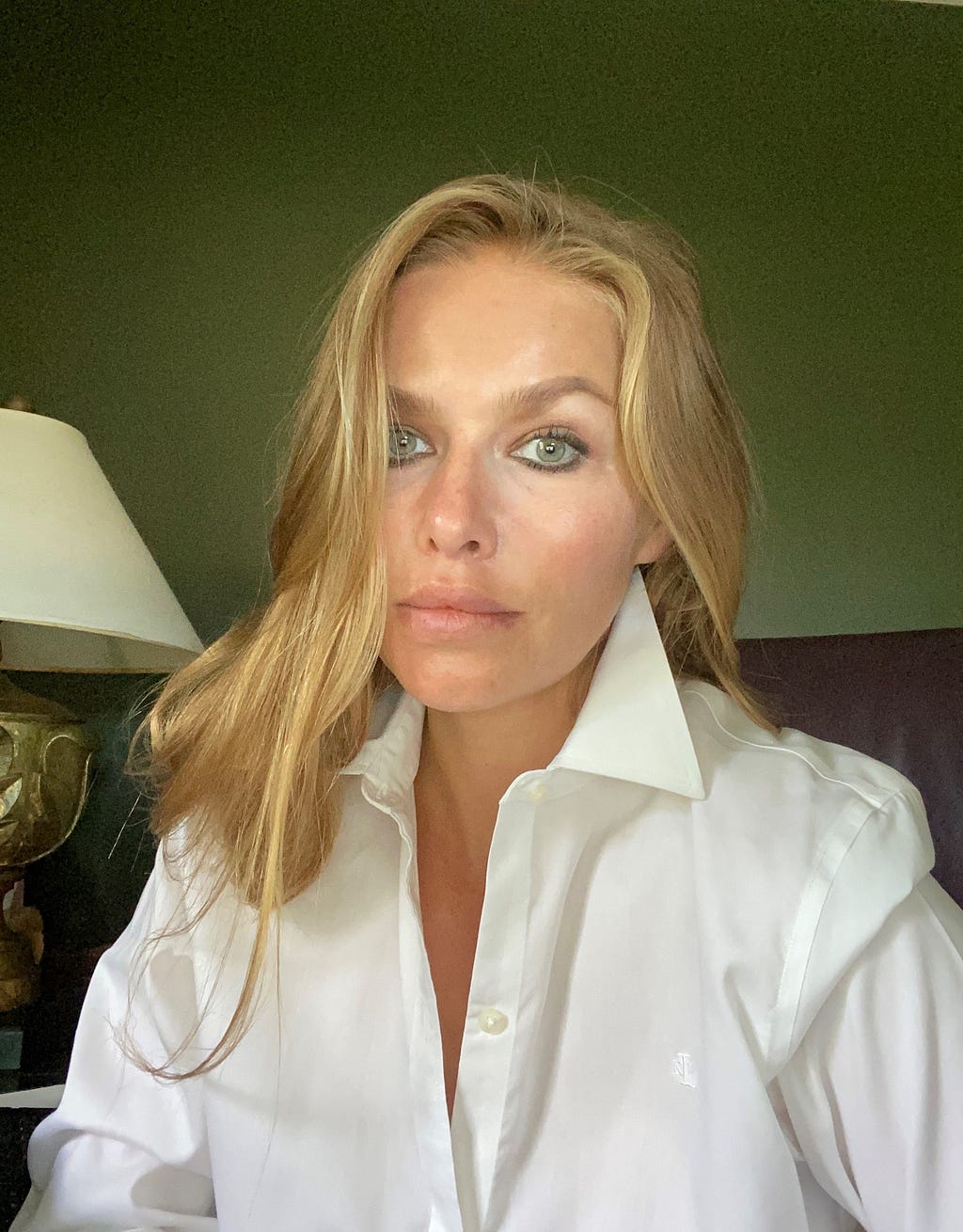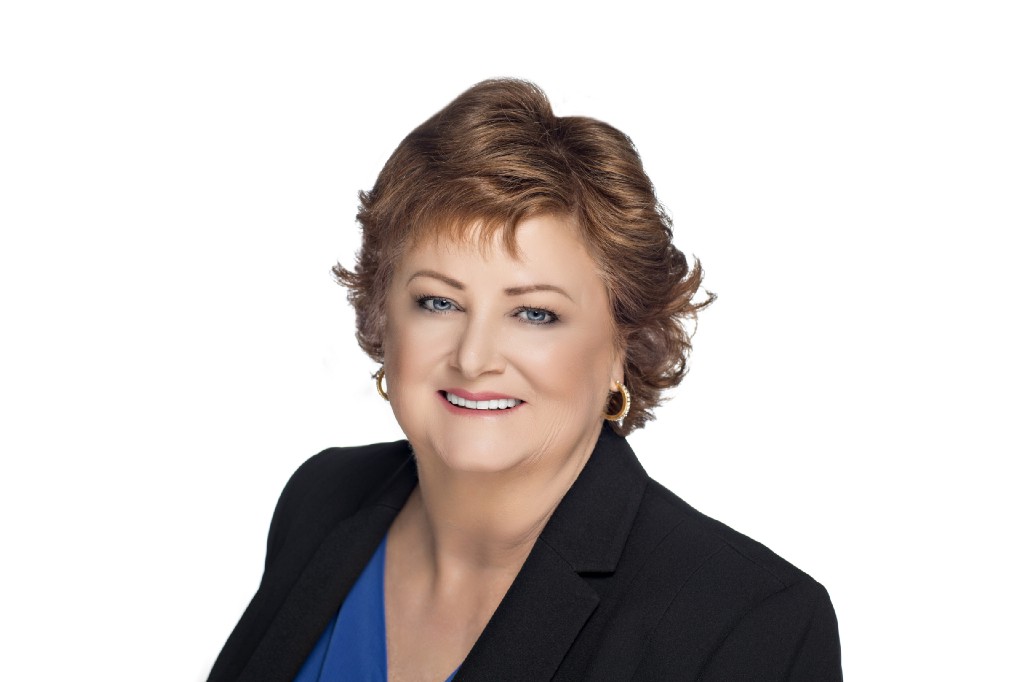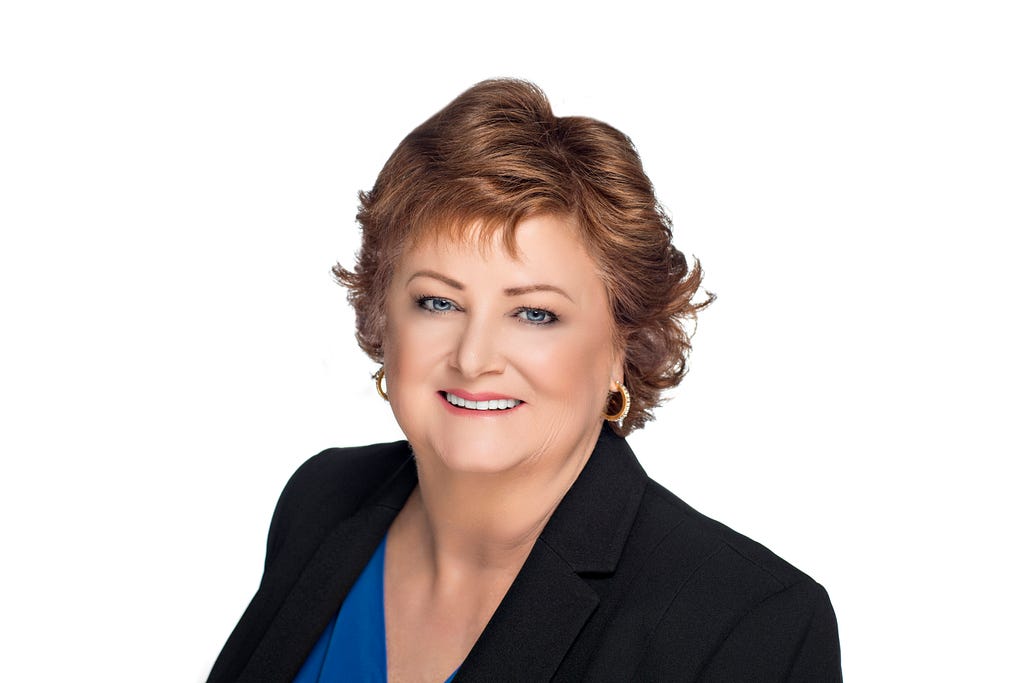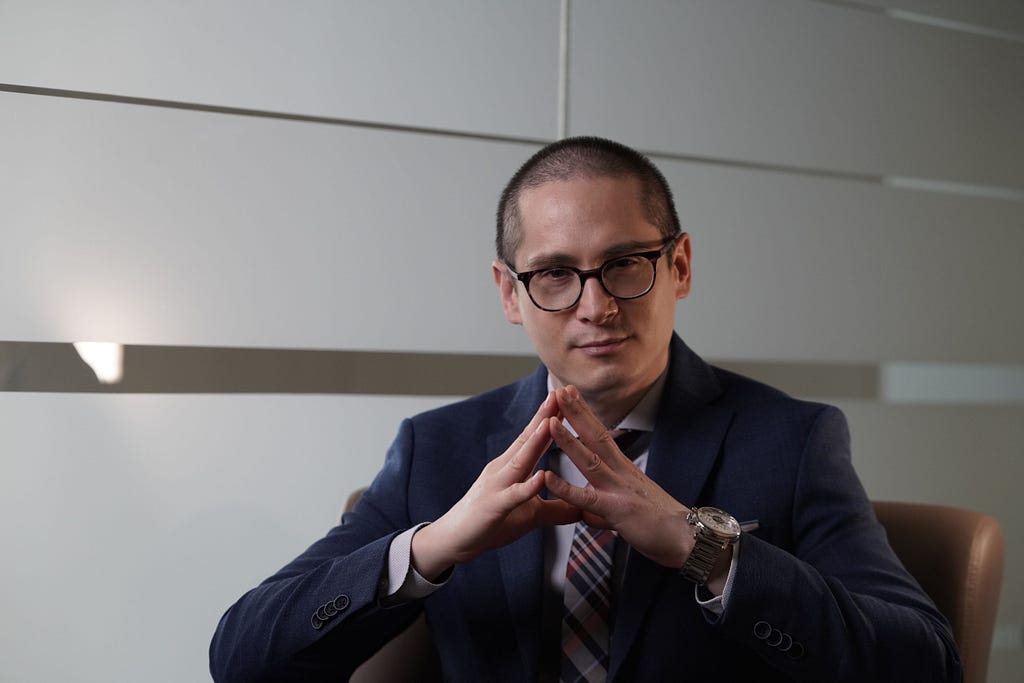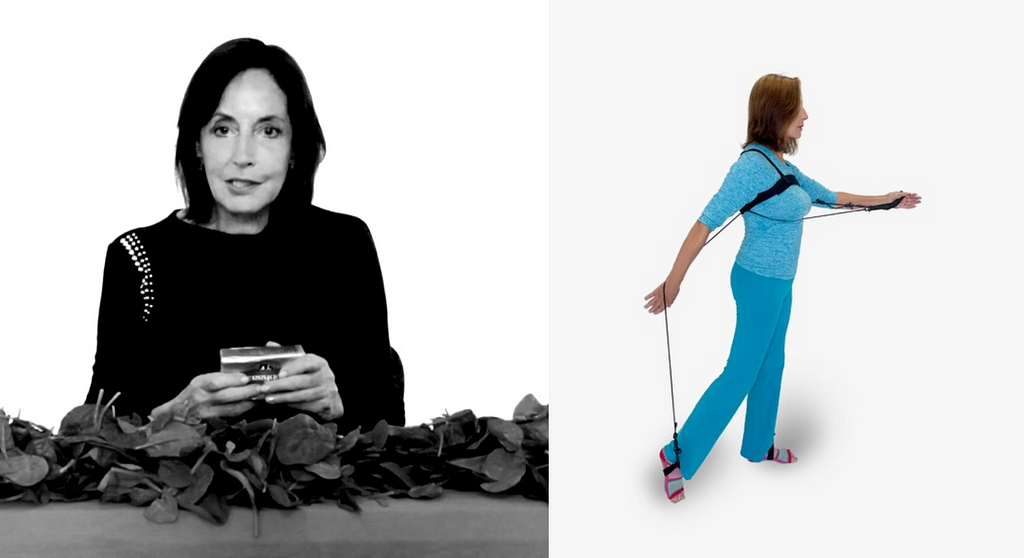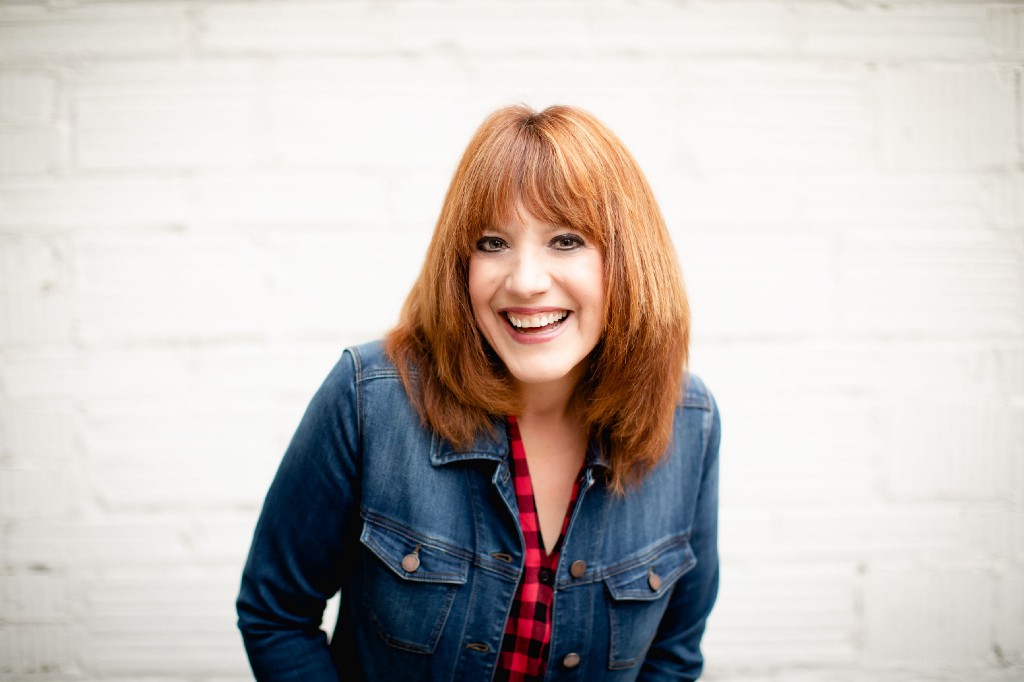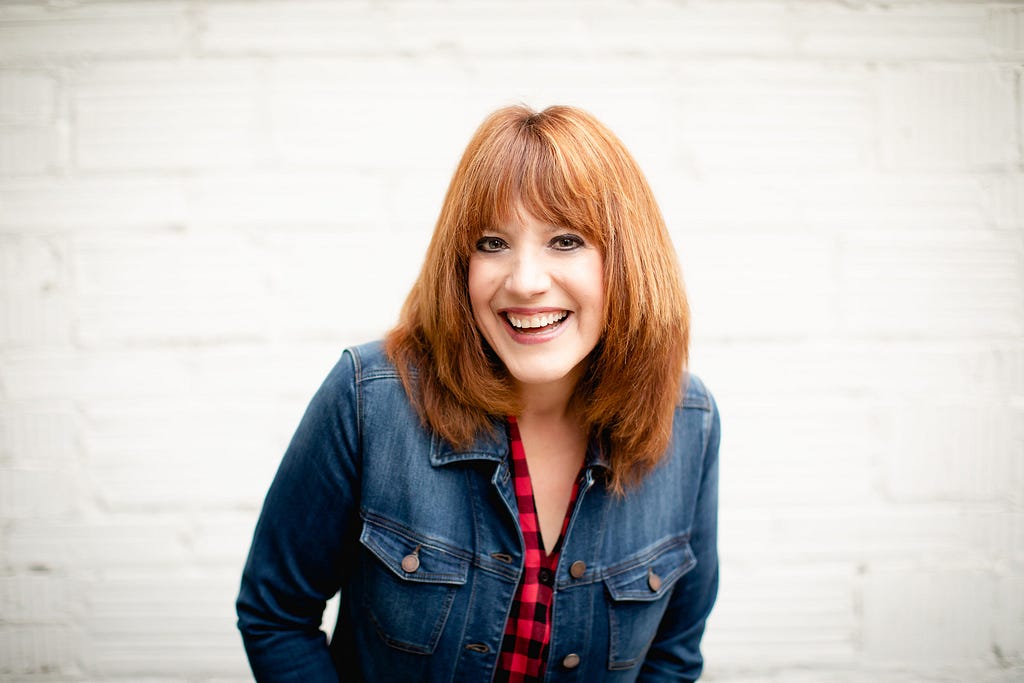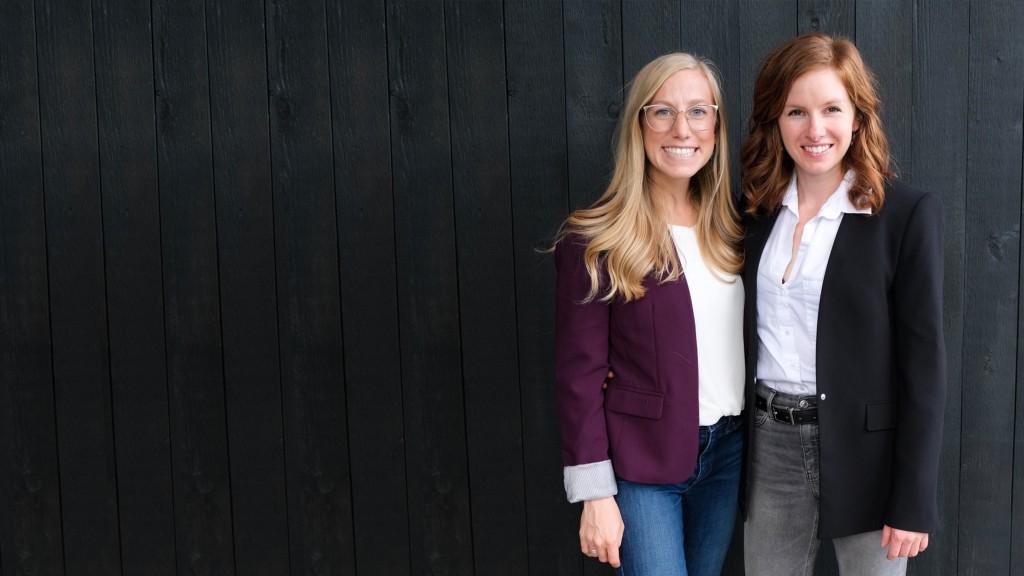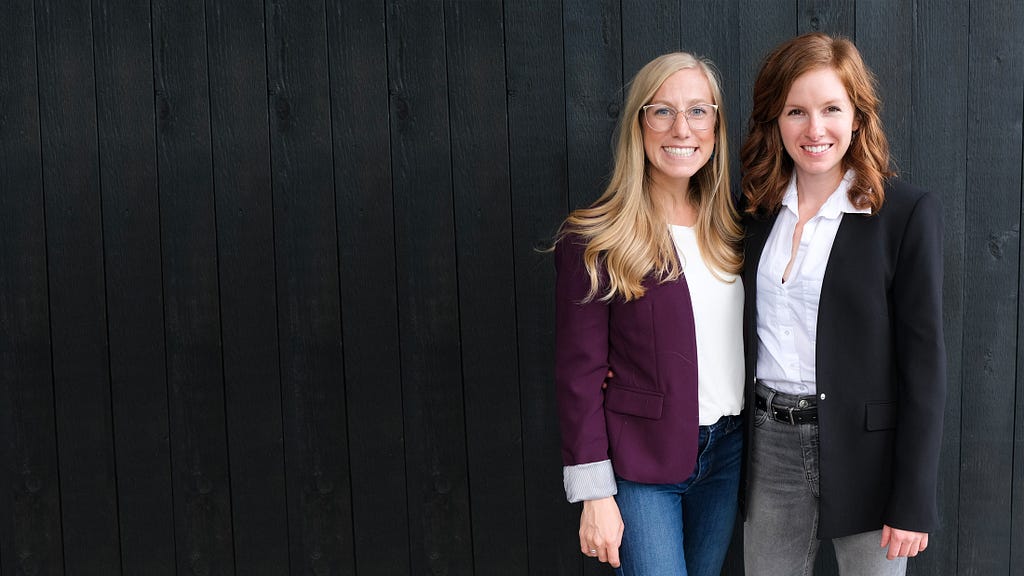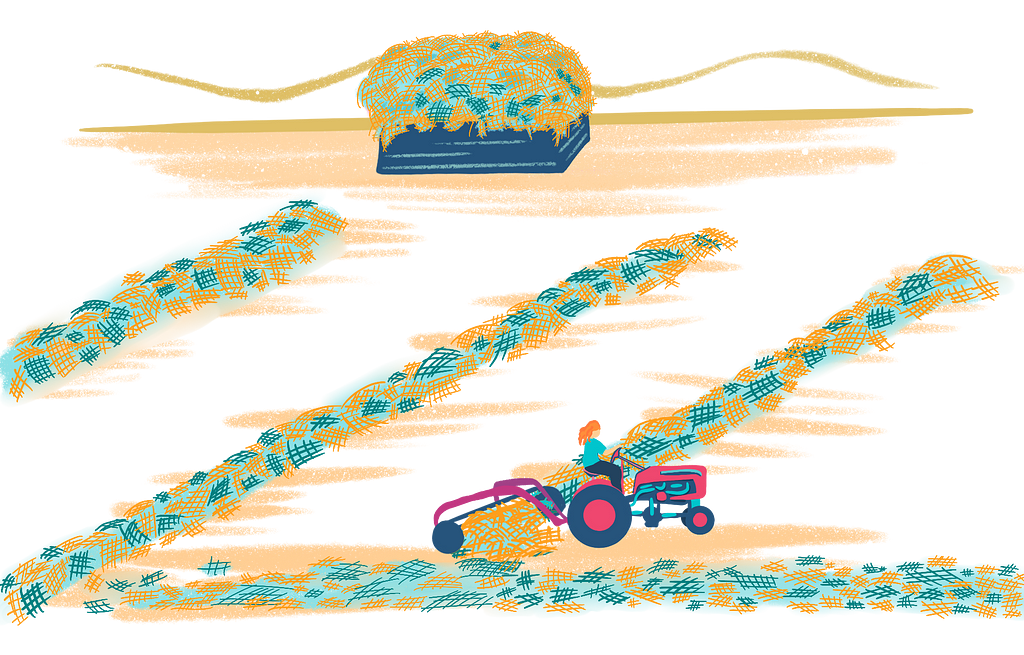An Interview With Candice Georgiadis
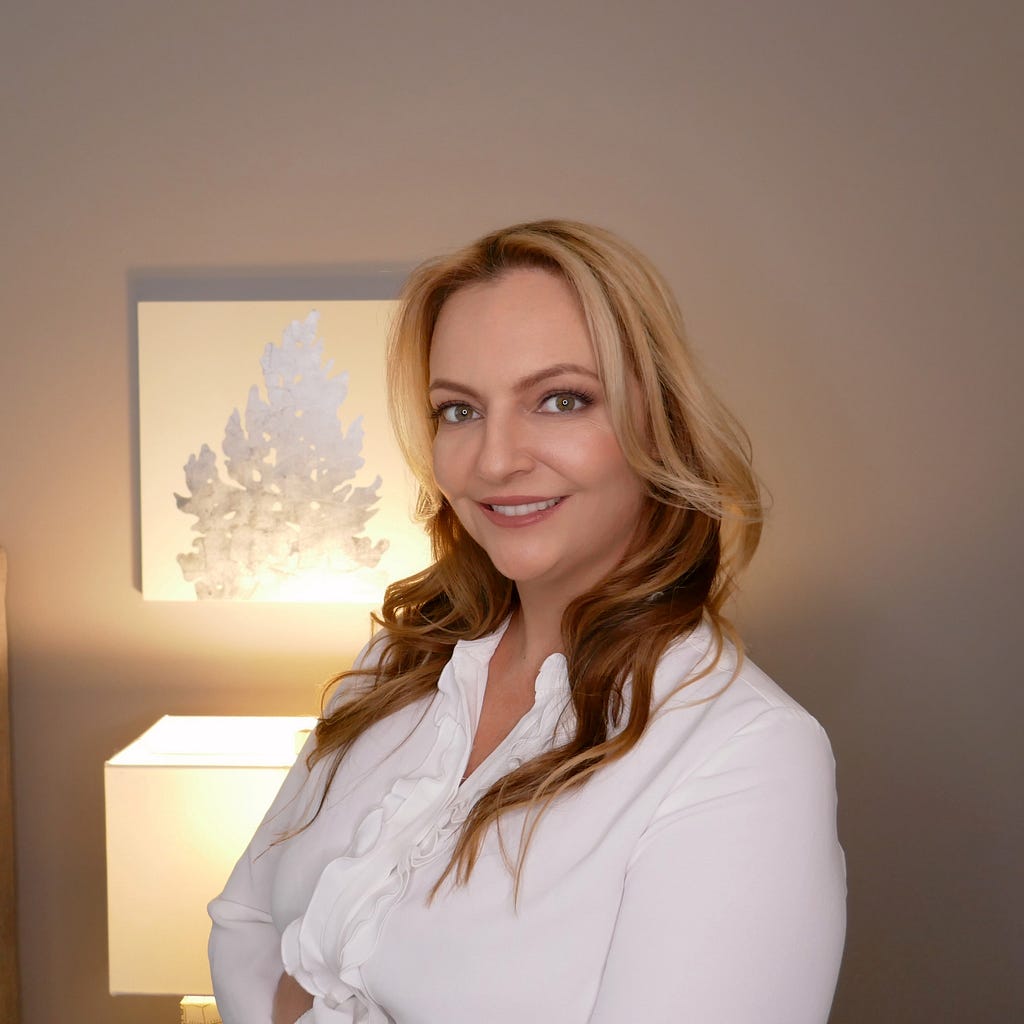
Ground yourself with the facts. Irrational thoughts and beliefs can get in the way of acknowledging your successes. Remind yourself of the education or experience that brought you to where you are. Look at the work you have done (make a list) and ask others what they see. For example, write down your wins, such as completing a project or coming up with an idea that helped your team. Keeping a written list can help you focus on your accomplishments.
As a part of our series about how very accomplished leaders were able to succeed despite experiencing Imposter Syndrome, I had the pleasure of interviewing Dr. Sunni Lampasso.
Dr. Sunni Lampasso is an Executive Coach and Consulting Psychologist. Using her background in psychology, she helps executives and business owners get to the root of what’s getting in the way of further success. Then, using an assessment process, Dr. Lampasso helps clients develop and implement a custom plan to maximize their potential and improve performance.
Thank you so much for joining us! Our readers would love to “get to know you” a bit better. Can you tell us a bit about your ‘backstory’?
My journey in helping people started at the age of 10 when I saved my grandmother from drowning. When I was old enough to work, I decided to become a lifeguard because I enjoyed being able to help people, and I loved swimming. During this time, my curiosity about people and their behavior grew when I took an elective psychology class in high school. In college, I majored in psychology and decided that I wanted to become a Clinical Psychologist. As soon as I finished college, I enrolled in a doctorate program. Since graduating, I’ve worked with people of all ages through my clinical work, and I also gained valuable experience as a leader and starting my own business. My transition to executive coaching and consulting psychology comes from my own experience and has allowed me to help leaders and business owners to hone their skills and reach their full potential.
Can you share with us the most interesting story from your career? Can you tell us what lessons or ‘take aways’ you learned from that?
The most interesting story from my career is how I started my private practice. As a Clinical Psychologist, I had always planned to open a private practice at some point in my career. However, I had no formal business training, and I didn’t know anyone with a private practice who could act as a mentor. So when I started my business, I didn’t have a plan or know the right questions to ask. Instead, I learned through trial and error, which resulted in some costly mistakes. For example, I outsourced my billing without understanding the billing process and realized that I lost revenue after several months.
From this experience, I learned that having a business plan is imperative when you’re starting a business. In addition, seeking out a mentor (or several mentors) can be invaluable. In addition, working with an Executive Coach (which I did when starting my second business) can help you develop a roadmap for success and handle challenges as they arise.
What do you think makes your company stand out? Can you share a story?
I think that my company stands out for a few reasons. First, being a boutique firm, I provide personalized service to each client and develop collaborative relationships with clients that help them to grow. Second, my advanced training as a clinical psychologist, combined with my passion for helping people and organizations thrive, gives me an advantage over other consulting firms. Third, my love for applying psychology in the workplace stems from my personal experience holding leadership positions and starting my own business. In addition, I’ve experienced the benefits of working with an executive coach to create a roadmap for my business. Finally, my experience as a coaching client gives me a firsthand understanding of what clients struggle with and how coaching can help.
Client success stories and positive feedback provide evidence of the value of the service that I provide. For example, I worked with a small business owner struggling with completing administrative tasks while taking care of managerial responsibilities. Using my experience as a psychologist, business owner, and coaching client, I helped him explore his strengths and challenge areas and develop a plan to prioritize his responsibilities. Outsourcing for specific tasks, which I am familiar with as a business owner, helped him save time and increase productivity. In addition, he noted that the support I provided by sending relevant articles and checking on his progress in between meetings helped him prioritize and grow as a manager and leader.
None of us are able to achieve success without some help along the way. Is there a particular person who you are grateful towards who helped get you to where you are? Can you share a story?
Dr. Chris Allen, a Workplace Psychologist, helped me pivot my career from Clinical Psychologist to Consulting Psychologist. Her story of transitioning from a clinical psychologist to founding a successful consulting business inspired me. Dr. Allen became my mentor and helped me to develop a transition plan. I’ve learned from her experience, and she connected me with a community of psychologists who also made a similar transition. Her support and the support of this community continue to be instrumental in my success as a consultant.
Ok thank you for all that. Now let’s shift to the main focus of this interview. We would like to explore and flesh out the experience of Impostor Syndrome. How would you define Impostor Syndrome? What do people with Imposter Syndrome feel?
Impostor Syndrome is a psychological phenomenon characterized by a pattern of persistent self-doubt that can impede success, especially when someone is early in their career or starting a new position. Common feelings associated with impostor syndrome are feeling like a fraud, not believing wins are deserved, and not attributing successes to your skills or abilities. Unfortunately, these feelings often persist despite evidence of accomplishments or successes.
Impostor Syndrome can sometimes be accompanied by anxiety and depression, but it is not an official diagnosis listed in the Diagnostic and Statistical Manual of Mental Disorders (DSM). However, psychologists acknowledge that the fear of being “found out” because of a belief that one is inadequate or incompetent despite being an accomplished professional is real.
It is important to note that Impostor Syndrome is not always caused solely by self-doubt. The workplace environment can reinforce impostor feelings. Toxic workplace culture can fuel Impostor Syndrome if the organization fails to value work/life balance and the collective group. In addition, bias and discrimination in the workplace can contribute to Impostor Syndrome.
What are the downsides of Impostor Syndrome? How can it limit people?
Impostor Syndrome can limit your ability to succeed at work and advance your career. This phenomenon also hinders the development of meaningful relationships at work. If you don’t develop relationships at work, your ability to learn and grow will be limited. Additionally, thoughts and feelings associated with Impostor Syndrome can become consuming and negatively impact concentration and productivity.
How can the experience of Impostor Syndrome impact how one treats others?
Impostor Syndrome hinders the development of meaningful relationships at work and can negatively affect how you treat others. For example, you may be more guarded and less likely to share with coworkers. In addition, others may perceive you as not caring or uninterested if you aren’t asking questions or talking about your successes and failures.
We would love to hear your story about your experience with Impostor Syndrome. Would you be able to share that with us?
I experienced impostor thoughts after being hired into a leadership position. My self-doubt and feelings of inadequacy caused me to avoid asking questions and taking risks. I didn’t feel comfortable talking about my successes or my failures with others, and, as a result, communicating less limited my ability to learn and grow professionally.
Did you ever shake the feeling off? If yes, what have you done to mitigate it or eliminate it?
For the most part, I have learned to manage impostor thoughts. However, they still surface from time to time. Remaining present and maintaining a growth and learning mindset helps me stay grounded and focused on learning. In addition, allowing myself to be vulnerable mitigates impostor feelings.
In your opinion, what are 5 steps that someone who is experiencing Impostor Syndrome can take to move forward despite feeling like an “Impostor”? Please share a story or an example for each.
- Ground yourself with the facts. Irrational thoughts and beliefs can get in the way of acknowledging your successes. Remind yourself of the education or experience that brought you to where you are. Look at the work you have done (make a list) and ask others what they see. For example, write down your wins, such as completing a project or coming up with an idea that helped your team. Keeping a written list can help you focus on your accomplishments.
- Practice self-compassion. Practicing self-compassion involves being kind and gentle with yourself and reminding yourself that you are not perfect (and no one is). For example, you can start by asking yourself what you might say to a friend who doesn’t believe they deserve acknowledgment for completing a complex project. Then try saying those words to yourself.
- Develop a growth and learning mindset. Having a growth mindset allows you to take on challenges and view failures as learning experiences. For example, if you make a mistake during a presentation at work, identify what you can learn from this experience. Maybe the error resulted from a lack of preparation, and you can spend more time preparing in the future.
- Be vulnerable. Disclosing information about ourselves can combat Impostor Syndrome. Talk with others you trust about your accomplishments and failures. Getting comfortable acknowledging your successes through discussion can allow you to celebrate your wins. In addition, talking openly about failures with others can help you feel less alone. Finally, talking about successes and failures can increase self-worth and build empathy. For example, speak with a coworker about a mistake you made and discuss what you learned from that mistake. Then, ask your coworker to share a story about a mistake they made at work.
- Consider working with a coach. If you find it challenging to manage thoughts related to Impostor Syndrome and notice it’s hindering your success, working with a coach can help you identify your strengths and develop skills to leverage them at work. In addition, coaching can provide a safe place to talk about impostor feelings, give you a realistic perspective, help you stop seeking perfection, and build confidence. For example, coaching can help you explore your thinking patterns and develop a growth mindset.
You are a person of great influence. If you could inspire a movement that would bring the most amount of good to the greatest amount of people, what would that be? You never know what your idea can trigger. 🙂
Adopting a growth and learning mindset has helped me reach my goals, stay motivated, and continue learning when setbacks occur. I want to inspire a movement to educate people about the benefits of adopting a growth and learning mindset and how it differs from a fixed mindset. A growth and learning mindset helps people learn from challenges, approach new situations and people with curiosity, and be more resilient during stressful times. If more people adopted a growth and learning mindset, we would have a more caring and productive society. In addition, I would advocate for teaching a growth mindset early in life. Educating children about the benefits of a growth mindset could help them navigate challenges and inspire curiosity.
We are blessed that some very prominent leaders read this column. Is there a person in the world, or in the US, with whom you would love to have a private breakfast or lunch, and why? He or she might just see this, especially if we tag them 🙂
I would love to have lunch with Gail Becker, founder of Caulipower. She is an inspirational leader who successfully pivoted from a corporate career to leading a thriving startup. Although Becker had friends and colleagues who didn’t support her vision, she persevered toward launching her product. With limited knowledge of the food industry, she identified a need for consumers to have quick and healthy food options and was passionate about bringing her idea to fruition. Becker acknowledged her lack of knowledge about this industry and hired consultants to help. In addition, she cares about her company culture and recognizes that diversity is key to bringing different perspectives. I’d love to talk with her about her experience founding and scaling a startup and about how she developed her company culture.
How can our readers follow you on social media?
Readers can follow my work on the Latest News section of my website https://www.shapingsuccessconsulting.com/ or follow me on Instagram @shaping_success
This was very inspiring. Thank you so much for joining us!
Dr Sunni Lampasso: How To Thrive Despite Experiencing Impostor Syndrome was originally published in Authority Magazine on Medium, where people are continuing the conversation by highlighting and responding to this story.


